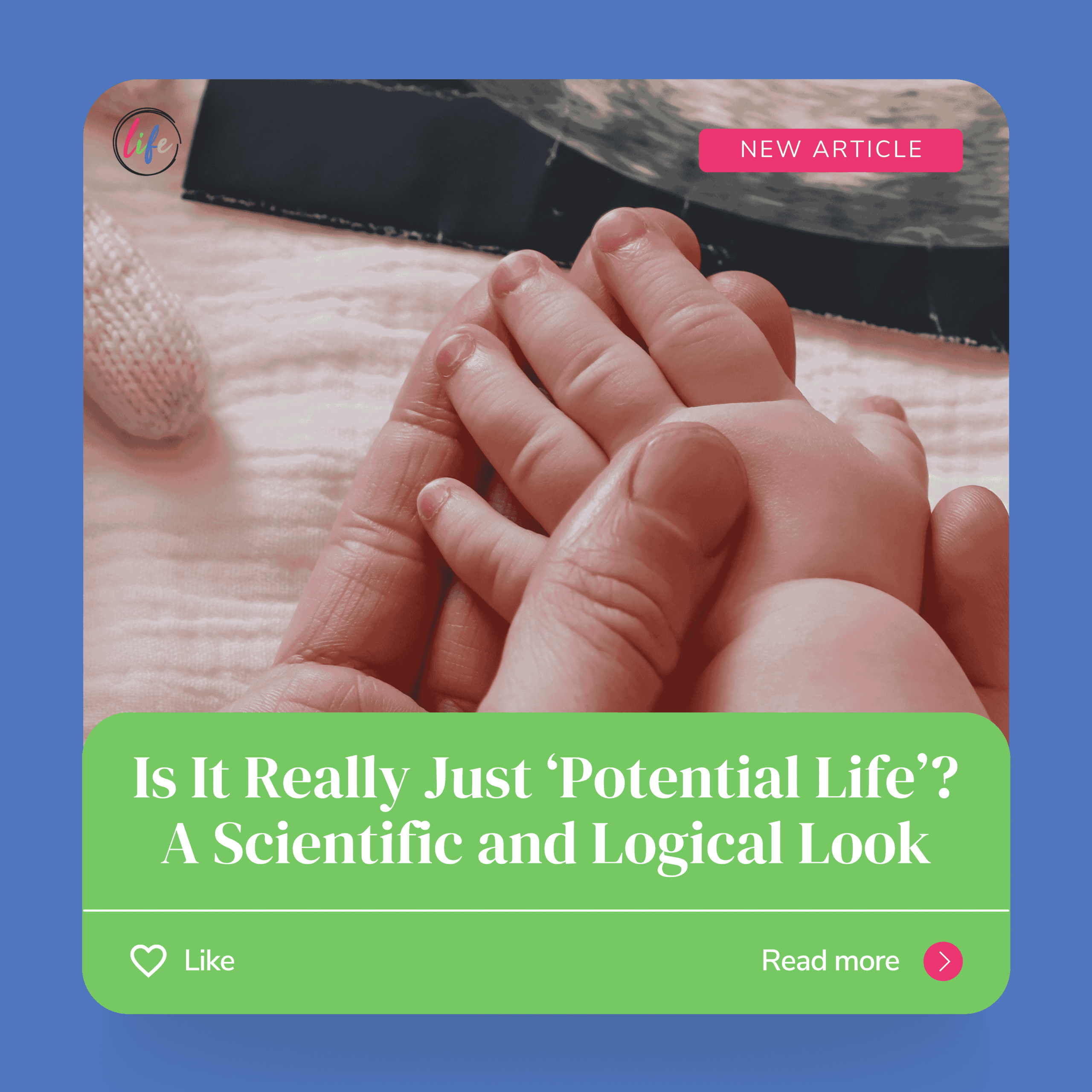
When discussing abortion, one phrase often surfaces: “It’s just potential life.” On the surface, it might sound logical — suggesting that the unborn child is only potential life, not yet a reality. But is this scientifically accurate?
The short answer: No.
Why “Potential Life” Isn’t Scientifically Accurate
From a biological standpoint, life doesn’t begin at birth – it begins at conception. At the moment the sperm and egg unite, a unique human organism comes into existence. This single-celled zygote contains its own complete DNA, distinct from the mother and father, determining everything from eye color to blood type. DNA is the scientific identifier of life – plants, animals and humans. DNA from the moment of conception, not only identifies the new organism as human but also as that specific human from that point forward.
Development is not a leap from “potential” to “actual” at some arbitrary point in pregnancy. Instead, it is a continuous process:
Day 1: Conception occurs.
Week 3: The heart begins to beat.
Week 8: All major organs have started forming.
Week 12: The baby can make facial expressions and respond to touch.
At no stage in this process is the child anything less than alive and human. The only differences between an unborn child and a newborn are size, level of development, environment, and degree of dependency — none of which change the child’s humanity.
In a landmark study in 2019 Steve Jacobs “emailed surveys to professors in the biology departments of over 1,000 institutions around the world.” The results showed that the vast majority of biologists – across various cultures – affirm that life begins at conception. Jacobs wrote, “I found that 5,337 biologists (96%) affirmed that a human’s life begins at fertilization…”
Logic Confirms It
If something labeled as potential life is growing, developing, and responding to its environment, it is in fact alive. To call a living, growing human a “potential life” is scientifically inaccurate. The term diminishes reality, replacing it with language that makes it easier to dismiss moral responsibility.
Imagine calling a seed a “potential plant” while it’s already sprouting. That wouldn’t make sense — it’s already in the process of being what it is by nature. The same is true for life in the womb.
Why This Matters
Language shapes belief. By labeling an unborn child as “potential life,” we subtly redefine human worth and sidestep the ethical reality that abortion ends an actual life in progress.
Science and logic agree: from conception onward, we are talking about a living human being — not potential life, but life already in motion.
Learn more about the various stages of fetal development (conception, first, second, and third trimester) and don’t forget to follow us on social media (Facebook, Instagram, and TikTok).